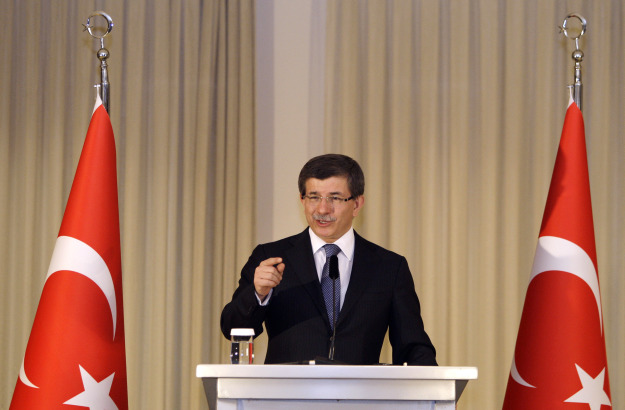
From Ahmet Davutoğlu, Foreign Policy: During the Cold War, Turkey was a "wing country" under NATO’s strategic framework, resting on the geographic perimeter of the Western alliance. NATO’s strategic concept, however, has evolved in the post-Cold War era — and so has Turkey’s calculation of its strategic environment. Turkey’s presence in Afghanistan is a clear indication of this change. We are a wing country no longer. …
Turkey’s unique demographic realities also affect its foreign-policy vision. There are more Bosnians in Turkey than in Bosnia-Herzegovina, more Albanians than in Kosovo, more Chechens than in Chechnya, more Abkhazians than in the Abkhaz region in Georgia, and a significant number of Azeris and Georgians, in addition to considerable other ethnicities from neighboring regions. Thus, these conflicts and the effect they have on their populations have a direct impact on domestic politics in Turkey. …
The European Union and NATO are the main fixtures and the main elements of continuity in Turkish foreign policy. Turkey has achieved more within these alliances during the past seven years under the AK Party government than it did in the previous 40 years. Turkey’s involvement in NATO has increased during this time; Turkey recently asked for, and achieved, a higher representation in the alliance. Turkey also has advanced considerably in the European integration process compared with the previous decade, when it was not even clear whether the EU was seriously considering Turkey’s candidacy. EU progress reports state that Turkish foreign policy and EU objectives are in harmony, a clear indication that Turkey’s foreign-policy orientation aligns well with transatlantic objectives. …
The fourth principle is adherence to a multi-dimensional foreign policy. Turkey’s relations with other global actors aim to be complementary, not in competition. Such a policy views Turkey’s strategic relationship with the United States through the two countries’ bilateral strategic ties and through NATO. It considers its EU membership process, its good neighborhood policy with Russia, and its synchronization policy in Eurasia as integral parts of a consistent policy that serves to complement each other. This means that good relations with Russia are not an alternative to relations with the EU. Nor is the model partnership with the United States a rival partnership against Russia. …
Turkey’s foreign-policy objectives and its vision of how to achieve them are very clear. Turkey has multiple goals over the next decade: First, it aims to achieve all EU membership conditions and become an influential EU member state by 2023. Second, it will continue to strive for regional integration, in the form of security and economic cooperation. Third, it will seek to play an influential role in regional conflict resolution. Fourth, it will vigorously participate in all global arenas. Fifth, it will play a determining role in international organizations and become one of the top 10 largest economies in the world.
Ahmet Davutoğlu is the minister of foreign affairs of the Republic of Turkey. (photo: STR/AFP/Getty)
Image: afp%205%2021%2010%20davutoglu%20turkey.jpg
